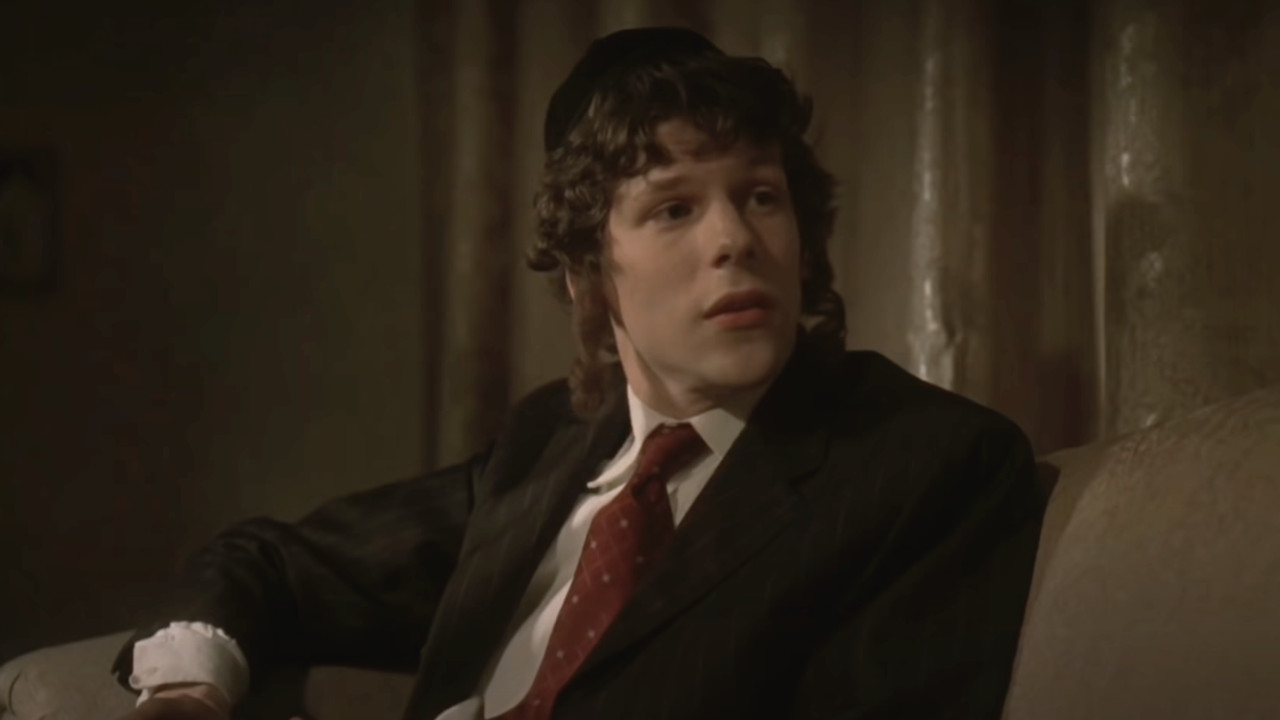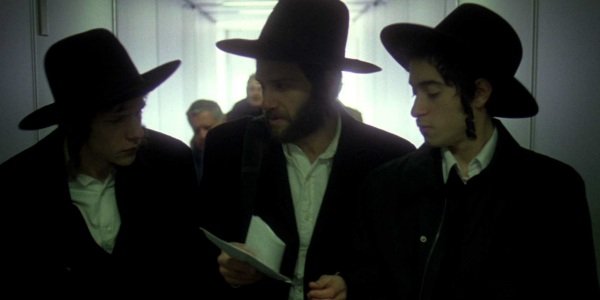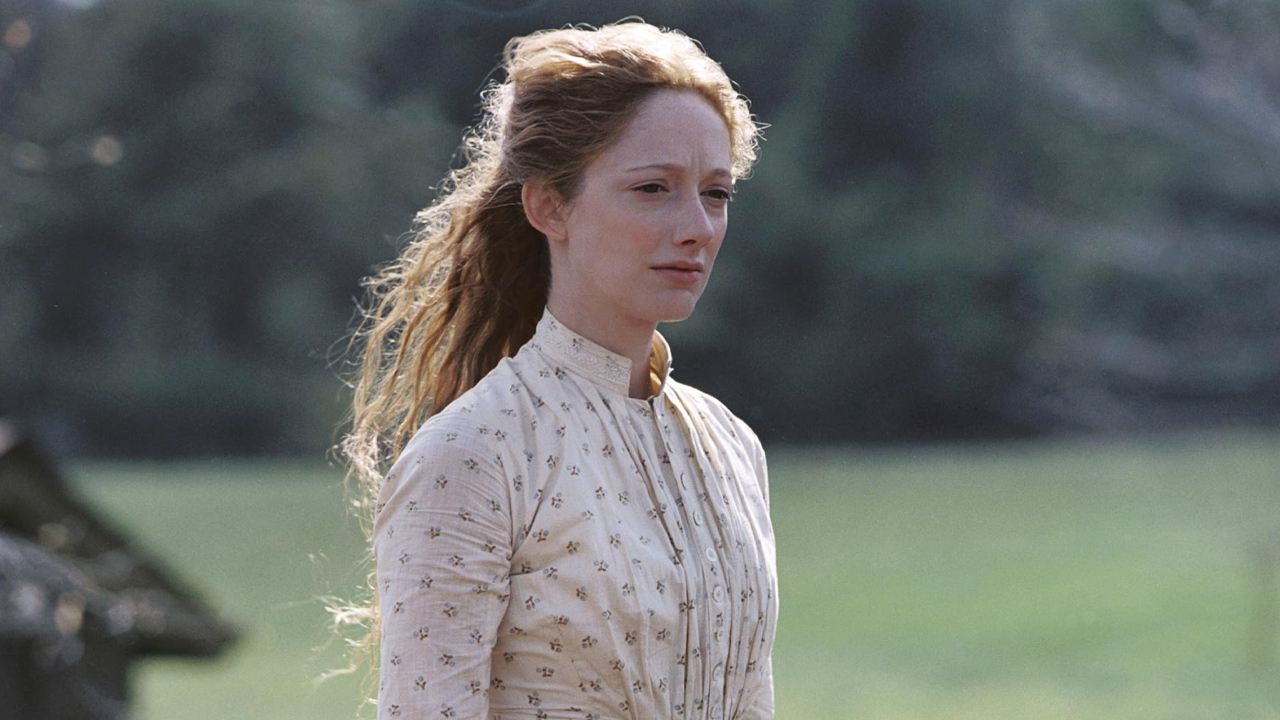Exclusive Interview: Jesse Eisenberg On Holy Rollers And Playing Producer, Kind Of

Your Daily Blend of Entertainment News
You are now subscribed
Your newsletter sign-up was successful
Jesse Eisenberg is coming off of a massive box office hit, last fall's Zombieland, but his reputation as an actor with a penchant for indies isn't going away any time soon. He's got a role in this spring's Michael Douglas vehicle Solitary Man, but up first is this weekend's Holy Rollers, a movie best described with its simple plot: based on a true story, it's about Hasidic Jews involved in an Ecstasy smuggling ring.
Eisenberg stars as the young Hasid Sam Gold, struggling a bit within his insular community when the girl he wants to marry turns him down, and discovering a whole new world when his rebellious neighbor (Justin Bartha) includes him in an Ecstasy smuggling ring, which allows Sam to travel outside of New York and meet all kinds of people previously foreign to him, but comes with its consequences as well. Eisenberg, Bartha and director Kevin Asch were able to research the world of Hasidic Jews for two years before production started, which lends the film a striking authenticity and a sympathy for characters rooted in a religion that, from the outside, can seem constricting and irrational. As we learn watching Sam, though, it can feel that way from the inside too.
I talked to Eisenberg about all the producer-like duties he did in getting the film together, his experiences meeting Hasids during his research, and how it all comes back to that universal New Yorker experience of passing a Hasidic neighborhood and thinking, 'Wow. I wonder what it's like to be those people.'
Holy Rollers opens this weekend in limited release.
Was the pitch for this the true story that it's based on?
Well I wrote the text on the poster: "In 1998 one million pills of Ecstasy were smuggled into the United States by Hasidic Jews." That's the pitch to producers as well as the audience. That's not why I wanted to be in it-- that I could care less about, that part of the story.
As a New Yorker did you have that experience of driving past the Hasidic neighborhood and think, 'What is up with these people?'
Your Daily Blend of Entertainment News
That's exactly the experience. And I'm Jewish as well, so on one hand you feel attracted to them because you share ancestry and culture and traditions and a religion even, and on the other hand they couldn't live in a more different community.
And you guys did tons of research.
Yeah, we had two years where we had to pitch producers the plot. During that period we could go to all these communities in Brooklyn to meet this people.
Were people excited to talk to you and give you all this information?
I never told people we were doing a movie about this. Hasidic Jews don't watch secular movies.
So what did you tell them to set up the interview?
Nothing, because there's a sect of Hasidic Jews who are interested in speaking with secular Jews. You can go to their school and just say, 'Oh, can you show me around?' I didn't feel like I was exploiting them, because this is what they want to do. Even if it doesn't take, they're happy to do it.

You're not credited as a producer, but you did a lot to help get this movie made. What did that involve?
I helped get a lot of the actors involved. My little sister, the guy who plays my father. I got Justin to be involved, Justin brought on the cinematographer and one of the producers. Then the cinematographer brought on his crew. This was a very homegrown production.
Have you been involved in production on that level before?
Yeah, I like to do that a lot. If I sign on to a movie that I really want to act in, a lot of times the only way it will get made is if I'm really involved in it early on. I like being involved. It makes me feel included, and it also allows me to do the things I really want to do. I wasn't the only person pushing for it, of course, but if we weren't all instrumental in that way, and all passionate about it in the right way, it wouldn't have gotten made. There's nothing pushing this thing forward that's in the market.
Do you feel like your taste is just off the mainstream enough that you really have to push?
Well movies in general are hard to get made even at the studios. If I really like something, and I so rarely find stuff that I really really like, you try really hard to get them made. As opposed to just being an actor for hire waiting at home, I just don't have the patience for that.
Does that make you want to be a filmmaker?
No not at all. I like facilitating the things I want to be in.
It seems like there's always lines drawn between actor and producer, so it would be hard to do as much as you do.
It's really whatever you want to do. Especially if you're savvy enough to know that what you have might be of interest. That's the trick, just knowing what people to ask and how to do it. At the end of the day you're just making movies. For example, the people that are very close to me are all in education, oftentimes with some under-served communities. And they have to work that much harder. For me, I'm just convincing people to make a movie.
How did you find yourself feeling about this world, after learning everything that you did?
I felt more sympathetic to the characters, which is the goal because I was playing a character that I felt bad for. He was brought into this [drug smuggling] world in a dishonest way. Sometimes I did have a critical attitude toward the community. Sometimes the way they may talk about people who are not part of their community would be in a way that rubs me a little bit the wrong way. Some things they could say would occasionally seem a little incendiary to me. Overall the people I really liked and spent a lot of time with were very generous to me.
Staff Writer at CinemaBlend

